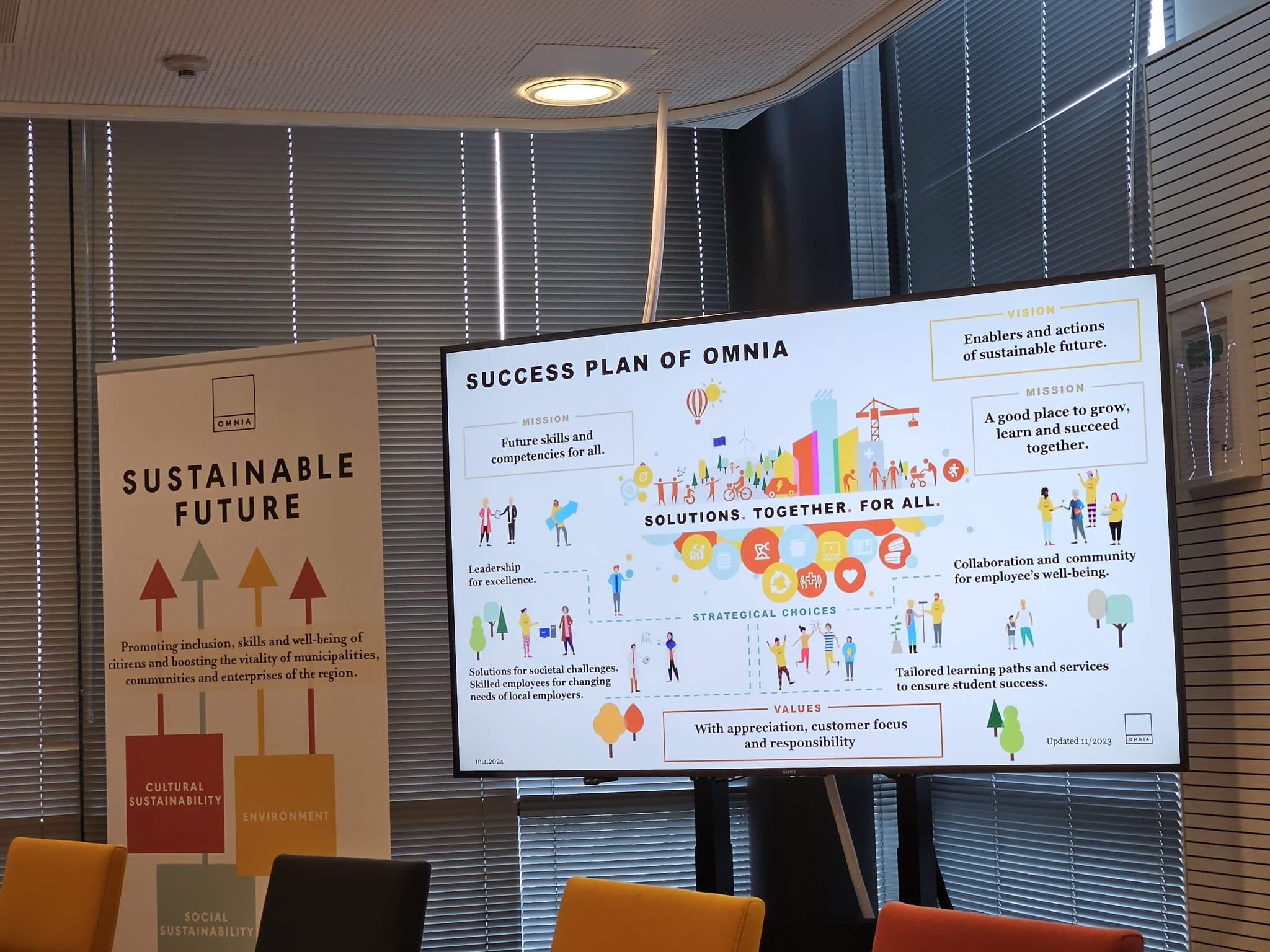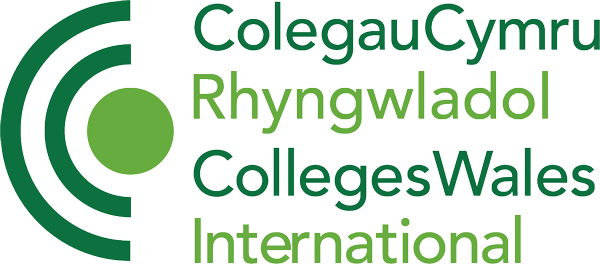In April 2024, ColegauCymru led a delegation of further education Principals and Welsh Government officials on a visit to Helsinki, as part of a Taith funded project. The purpose of the visit was to review vocational qualification reform and implementation in Finland, with a view to informing future thinking on vocational education and training (VET) in Wales.

Delegates explored how VET is regulated and quality assured in Finland, and looked at the potential learning for vocational qualification reform in Wales. ColegauCymru has long called for a VET strategy for Wales, which should closely align with a wider economic strategy, and as the Welsh Government and the sector responds to the recommendations of the Review of vocational qualifications in Wales, the learning from this visit is significant.
The programme of presentations, meetings and discussions was organised with the support of our partner in Finland, the Finnish Association for the Development of Vocational Education and Training (AMKE), which represents the interests of their 87 members, ranging from VET providers, vocational colleges, specialised institutions and providers of continuing vocational training, by influencing legislation and policy guidelines.
The group visited several key organisations including Skills Finland, Finnish National Agency for Education (EDUFI), Omnia Vocational Training Institution and Luovi Vocational College, and attended a networking dinner with members of AMKE, the Director of a vocational college in Finland, and the Head of VET Reform at the Ministry of Education in Estonia.
The Finnish VET system saw major reform in 2018 to create a more efficient competence-based system. Since then, that reform has been under constant review and development. VET, in Finland, supports lifelong learning and learners’ development as human beings and members of society, equipping them with the skills, knowledge, and capabilities for employment and professional development.
The group found that VET in Finland is guided by a clear set of design principles:
- VET and Work-based learning is publicly-funded and free of charge;
- There is an emphasis on identification and RPL, shifting the focus of education and training to acquiring missing competences;
- Each learner has their own personal competence development plan (PCDP), which outlines previously acquired competence and details what competences the learner needs, and how they are acquired in different learning environments;
- The introduction of flexible modular qualifications that are more efficient and responsive to the skills needs and demands of the labour market, as technology and businesses are changing at such a pace that qualifications cannot keep up;
- Learners benefit from the introduction of clear ‘attractive’ pathways and centralised lifelong career guidance and support;
- Trust and autonomy in VET providers who are responsible for the quality of their own operations.
Following the visit the group’s initial reflections are that there is much to learn particularly around how:
- VET policy can be developed holistically and collaboratively;
- a VET system, designed around individual pathways and linked to reliable and trusted data on future skills needs, can work;
- the use of VET competences and the Recognition of Prior Learning (RPL) can create efficiencies; and
- trust and responsibility in VET providers and teachers supports quality.
 Next steps
Next steps
Following the visit, ColegauCymru is preparing a report, the recommendations of which will inform our response to the Welsh Government’s review of vocational qualifications – first and foremost, what a VET strategy for Wales should look like, as well as distilling the priorities the Commission for Tertiary Education and Research (CTER) need to consider. The final report is due to be published in Autumn 2024.
Further Information
Welsh Government Report
A review of vocational qualifications in Wales
Sharon Lusher, September 2023
Jamie Adair, Policy and Public Affairs Assistant
Jamie.Adair@ColegauCymru.ac.uk





